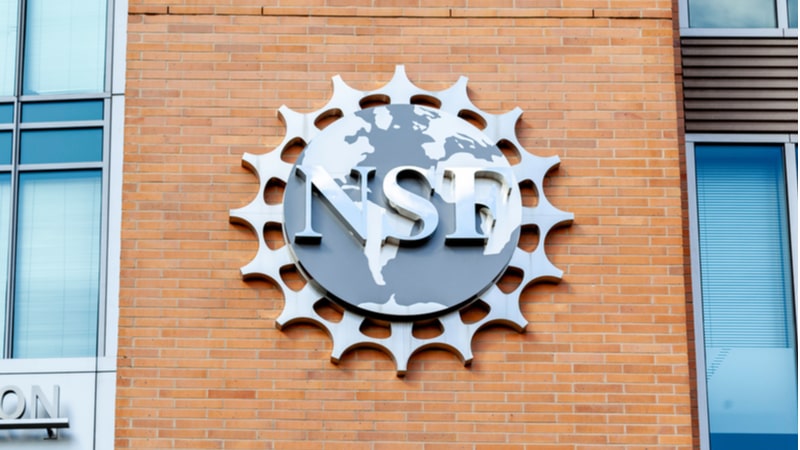
It’s been one year since President Biden signed the CHIPS and Science Act into law, and the National Science Foundation (NSF) has been busy implementing initiatives to safeguard the nation’s research ecosystem and to comply with the law’s research security provisions.
During a media briefing on Aug. 22, NSF experts shared ways that the agency is looking to safeguard the research ecosystem by collaborating with the research community at all levels.
“Let me tell you what our overall vision is. I feel that through our efforts so far, abiding by CHIPS and Science, and the coordination in National Security Presidential Memorandum 33 – which is on research, security, and integrity and its implementation guidance – is a way that we’ve created a good structure for research security,” said Rebecca Keiser, chief of research security strategy and policy at NSF.
“I would love to see us – and this is our view of what we want to do, what we’re going to talk to you about today – moving from a culture of compliance to a culture of collaboration,” Keiser told reporters. “And that means collaboration with the research community at all levels: the researchers, the administrators, those in other Federal agencies, and internationally to all work together to collaborate on safeguarding our research ecosystem while maintaining its openness.”
One initiative underway at NSF comes in the form of a recent “Dear Colleague” letter, which is a form of a call for proposals, that informs the community that NSF will launch a new program specifically designed to study the field of research security.
This “Research on Research Security Program,” or RRSP, will be a typical research program in which researchers will submit their proposals to NSF to conduct research, undergo the merit review process, and then be funded to conduct the research, according to Shawna Cox, NSF’s program director of the Office of the Chief of Research Security Strategy and Policy.
“Right now, what we’ve put the call for proposals out for is a workshop to bring together researchers who are already conducting research or are interested in conducting research in the domain of research security, to start creating a community of practice to bring together experts who will need to collaborate in order to conduct the research that we envision happening under the research on research security program,” Cox explained.
“Given the highly interdisciplinary nature of research security and NSF’s commitment to broadening participation, we’re inviting proposals from the full spectrum of diverse talent that society has to offer, including those in academia, industry, government, and nonprofit organizations,” Cox said. “We plan to make a single award and expect that to probably be a single workshop.”
Cox added that proposals for the RRSP workshop are due this September, and NSF expects to make an award by the end of the calendar year. The agency expects the workshop to take place in the first half of the 2024 calendar year, and then the solicitation for the research program itself will come out later next summer – after NSF reviews the recommendations from the workshop participants.
Another exciting initiative – as mandated by the CHIPS and Science Act – is the creation of the Research Security and Integrity Information Sharing Analysis Organization, which NSF has renamed SECURE, which stands for Safeguarding the Entire Community in the U.S. Research Ecosystem.
NSF has a solicitation out right now for this non-governmental organization, which it hopes to stand up by the end of fiscal year 2024. Kelvin Droegemeier, expert consultant to NSF, explained that it will be a single awardee, “which might be a consortium of organizations, we just don’t know.”
“We’re very excited about the standup of this thing, because it is being structured at the direction of Congress to provide the kinds of tools and resources needed for universities, for small and medium-sized businesses to make what we call ‘security-informed decisions,’” Droegemeier said.
According to Droegemeier, SECURE will provide guidance and useful frameworks to the research community, community engagement, as well as data analysis and reporting.
“One of the most important things about this center, the key thing, is that it will garner the trust of the community, become a trusted agent and activity as a non-governmental organization and to immediately show value to the community in terms of addressing the kinds of research security challenges that we’re all facing,” he said, adding, “to make sure that we are not just only safeguarding our research, but as Rebecca said, we are empowering researchers to have international collaboration – which we really want to see happen, very important to our nation – and this will help facilitate that collaboration rather than impede it.”
